IPEM Awards Excellence
Gold Medal Award Healthcare
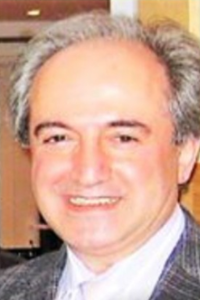
I am truly honoured to receive the IPEM Gold Medal, recognising my contributions to advancing healthcare over more than three decades. Since beginning my professional journey in 1990, my work has focused on bridging clinical service delivery with research and innovation. I have been privileged to contribute to service development and translational research that improve patient outcomes and inspire dedicated colleagues nationally and internationally. This award further motivates me to continue advancing education, training, and research, while creating new opportunities to serve communities at home and abroad. IPEM’s support and its collaboration with clinical institutions and universities are vital to strengthening healthcare through knowledge sharing and professional development.
Gold Medal Award Academic
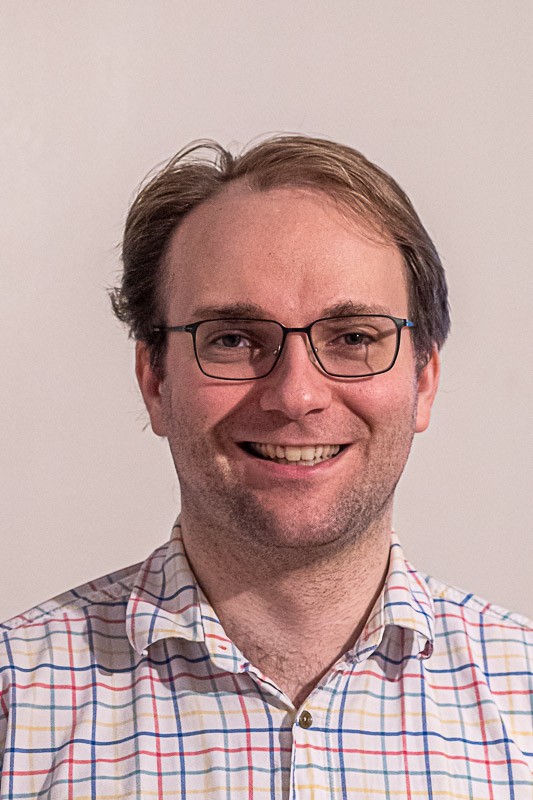
Life, for a physicist, is odd: it appears to create order in a universe where disorder always increases. For the last fifteen years, I have been lucky enough to be part of a small but internationally significant group of scientists who have used a technique called dissolution Dynamic Nuclear Polarisation (DNP) to image the chemical reactions that energetically power life, which collectively are known as metabolism. These reactions are complex, but dynamic – they change as you wake, feed or exercise – and they have been known for many decades to be altered in diseases ranging from cancer to heart failure. DNP permits some metabolites to be transiently visible to specialised forms of MRI scan, imaging both where these molecules go, and, crucially, what they become and interconvert into. This award by IPEM is a huge honour and belongs not just to me but to the wider community of clinicians and scientists of all ages that I have been lucky to enough work with. I have played a small part of the journey of DNP from condensed matter physics laboratories and particle physics experiments to international clinical trials studying hugely relevant human diseases in different continents. It is a great accolade to be told by my peers that what I do is both unashamedly both excellent physics in its own right and highly medically relevant. From a physics perspective, DNP still holds many secrets that are not yet fully understood, but as a useful technique it has already shone light on the mechanisms of disease, quantified physiology in species from people to pythons, and helped us understand drugs from essential medicines to novel compounds in clinical trials. As a radiological technique, It offers the promise to transform the treatment of patients in the future. For example, directly imaging metabolism could let us see if a chemotherapy is working potentially hours after its administration; or if a patient with potentially life-limiting cardiac complaints would benefit from an aggressive intervention – questions that, at the moment, are difficult to objectively and rapidly assess in the clinic. I am overjoyed to receive this medal, which I hope also celebrates a very long history of physicists making sustained and substantial contributions to healthcare.
Early Careers Prize Healthcare
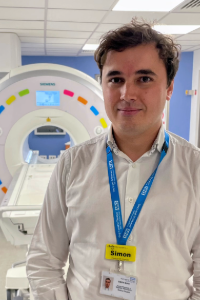
Winning the IPEM Early Career Award in Healthcare is a real honour. It reflects the collective effort of colleagues across physics, radiography, and clinical teams, and reinforces my commitment to using science and innovation to improve patient care. I’m especially grateful for the mentorship and guidance of Anna Barnes, whose support has been instrumental in shaping my career and approach to leadership.
As Clinical Lead for MR Physics at Guy’s and St Thomas’ NHS Foundation Trust, I focus on delivering MRI services that are safer, more efficient, and patient-centred. My work brings together clinical practice, data science, and collaborative leadership to improve how imaging is delivered across the NHS. I’ve helped develop new MRI pathways for patients with complex implants such as spinal cord and cochlear devices, improving both safety and diagnostic confidence. I also lead work using data and AI to enhance MRI capacity and reduce delays, while contributing nationally to workforce planning and technology evaluations that are shaping the future of NHS imaging.
Early Careers Prize Innovation

I’m Dr Davide Piaggio, Assistant Professor in Biomedical Engineering at the University of Warwick, Co-Director of the Applied Biomedical Signal Processing and Intelligent eHealth Lab, and executive member of the Biomedical Engineering Institute at Warwick. I am also an active member of the Institute of Physics and Engineering in Medicine (IPEM), a collaborator with the International Federation for Medical and Biological Engineering (IFMBE), and currently serve as Secretary General of the European Alliance for Medical and Biological Engineering and Science (EAMBES). My work focuses on developing frugal medical devices, AI-driven diagnostics, and sustainable healthcare technologies to improve accessibility and equity in healthcare, particularly in low-resource settings.
Winning the Early Career Award in Innovation at IPEM is a true honour, as it recognises our efforts to bridge high-tech solutions with global health needs. This award will help me strengthen international collaborations and accelerate the translation of my research into real-world healthcare solutions.
With this, I hope to inspire fellow colleagues and future generations of students to pursue innovation that makes a lasting global impact.
Last but not least, I would like to thank all my mentors, colleagues, friends, and family for their constant support and encouragement throughout this journey.
Roy Ellis Patient Benefit Award
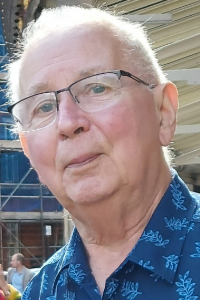
As an octogenarian it is most gratifying to receive this award which recognises voluntary work over the last 45 years. Having trained as a mechanical engineer in the motor industry it was a large sideways step to move into Rehabilitation Engineering when I joined The Orthotic Research and Locomotor Assessment Unit (ORLAU) in Oswestry some 50 years ago. A steep learning curve was greatly assisted by meeting Penny Butler a physiotherapist. She left to do her own research into control problems experienced by children with Cerebral palsy but discussed her findings with me and this led to a new therapeutic approach called Targeted Training based on biomechanical principles.
To test the effectiveness of the approach we set up The Movement Centre as a registered charity https://the-movement-centre.co.uk/ and are now in the process of providing on line teaching of the approach through a new charity called OPTIMI https://optimi.org.uk/. In the near future we are going to transfer this material onto a platform based in New Zealand which is dedicated to the needs of therapists and the prize money will assist with this process.
Spiers Prize for Outreach
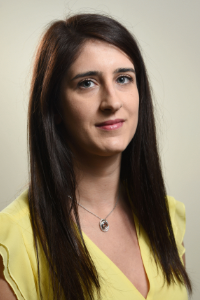
I am truly honoured to receive the 2025 IPEM's Spiers' Prize for Outreach. I am currently an Associate Professor in the Department of Medical Physics and Biomedical Engineering. My research focuses on radiotherapy physics and imaging, with a strong interest in improving paediatric cancer treatments. Alongside this, I am a passionate advocate for public and patient engagement and involvement (PPIE) activity. I have led and contributed to a variety of co-production activities related to my research, including “How can we share research together?”, working alongside inspiring people with experience of radiotherapy to raise the visibility of physics and engineering in cancer research. Receiving this award from IPEM is especially meaningful to me, as it recognises the commitment in developing PPIE as a core component of research culture and celebrates the shared effort of everyone involved.
IPEM/WCSIM Essay Prize
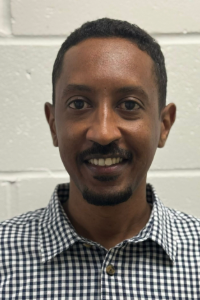
Mohamed Madani is a Senior Radiation Engineer within Kent Oncology Centre at Maidstone and Tunbridge Wells NHS Trust. Where he plays a role in maintaining and optimizing high-precision radiotherapy systems to ensure the safe and efficient delivery of cancer treatment. With a decade of experience managing linear accelerators (Linacs) across diverse healthcare institutions in Saudi Arabia and the UK, Mohamed brings a depth of technical expertise to his role.
An IPEM Full Member holding BSC in Medical Engineering and a Level 7 Diploma in computing technology he is equally passionate about innovation and collaboration.
His award-winning essay, ‘’ From Service Call to System Insight: How everyday Engineering Sustains Cancer Care – The Hidden Power of the Radiotherapy Engineer.’’ Showcases how routine maintenance practices can drive environmental impact and clinical resilience alike. In his view, radiotherapy engineers are not just problem-solvers, they are sustainability catalysts within modern healthcare.
Read Mohamed's winning essay From Service Call to System Insight: How Everyday Engineering Sustains Cancer Care — The Hidden Power of the Radiotherapy Engineer
Team Award
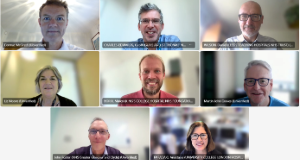
Cormac McGrath, Geoff Charles-Edwards, Daniel Wilson, Liz Moore, Marco Borri, Martin Graves, John Foster, Anastasia Papadaki
Our team, the inaugural IPEM MRSE Assessment Group—comprising mainly NHS clinical scientists from different parts of the UK alongside a colleague from the MRI industrial sector—is proud to have received this award in recognition of our work establishing the IPEM Magnetic Resonance Safety Expert (MRSE) certification scheme. While MRI is often perceived as a safe imaging modality, it carries significant hazards and demands expert oversight—particularly as technology and clinical applications become more complex. Our group was formed in 2020 but this achievement builds on nearly two decades of effort by many dedicated individuals and professional bodies who laid the foundations. We have worked collaboratively to create a rigorous, nationally recognised framework that ensures MRI services can access certificated MR safety experts. Winning this award affirms the importance of our mission: improving patient safety, standardising best practice, and strengthening public confidence in MRI services. It reflects the dedication, expertise, and shared vision of everyone involved—and marks a milestone in advancing MRI safety culture across the UK and beyond.